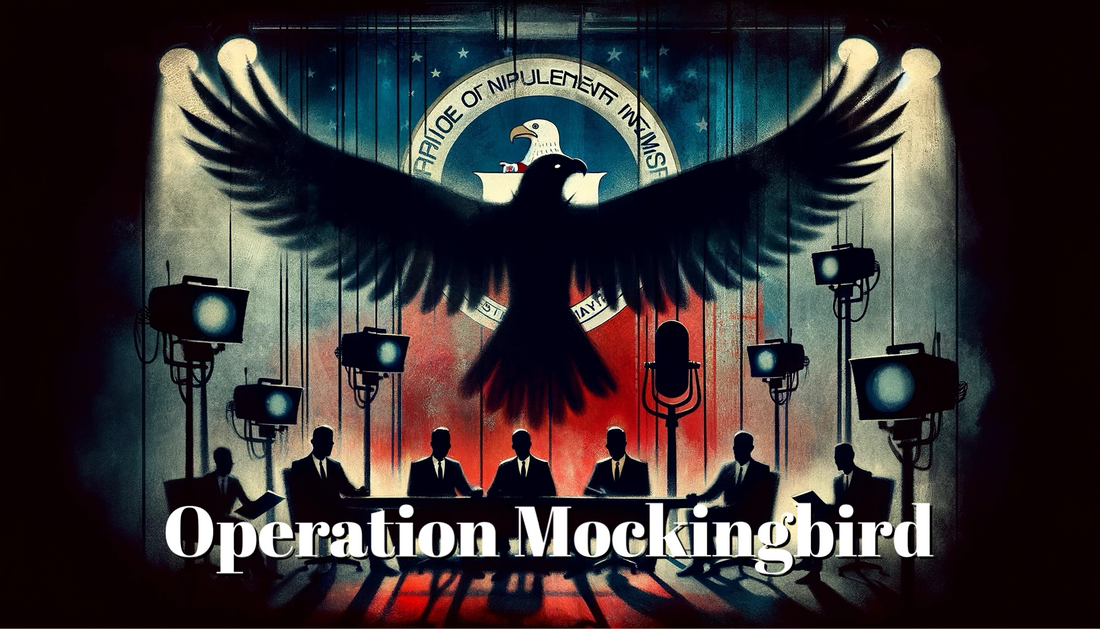 In the annals of the Cold War, the United States Central Intelligence Agency (CIA) undertook a myriad of covert operations to counter the spread of communism and Soviet influence around the globe. Among these clandestine endeavors, one of the most controversial and debated is Operation Mockingbird, a secret campaign aimed at influencing media and public opinion that continues to this day. While many details of Operation Mockingbird have emerged over the years, much about its extent and impact remains shrouded in secrecy.
In the annals of the Cold War, the United States Central Intelligence Agency (CIA) undertook a myriad of covert operations to counter the spread of communism and Soviet influence around the globe. Among these clandestine endeavors, one of the most controversial and debated is Operation Mockingbird, a secret campaign aimed at influencing media and public opinion that continues to this day. While many details of Operation Mockingbird have emerged over the years, much about its extent and impact remains shrouded in secrecy.
The Genesis of Mockingbird
Operation Mockingbird reportedly began in the late 1940s or early 1950s, though its exact inception date is difficult to pin down due to the operation's covert nature. The Cold War era was a time of intense ideological battle between the capitalist West, led by the United States, and the communist East, spearheaded by the Soviet Union. In this context, the CIA launched Operation Mockingbird with a strategic aim: to control the narrative and ensure media coverage aligned with U.S. interests.
The Mechanics of Media Manipulation
At the heart of Operation Mockingbird was the recruitment of journalists and media executives, who were either wittingly or unwittingly drawn into the CIA's orbit. The operation sought to plant stories, influence news coverage, and even sometimes directly control newspapers, magazines, and broadcast networks. High-profile publications and journalists in both the United States and abroad were reportedly targeted, leveraging the wide reach of Western media to disseminate propaganda that countered communist narratives and promoted U.S. foreign policy objectives. Important note here, today there are less than a handful of organizations that control ALL of the media companies.
Revelations and Public Scrutiny
The existence of Operation Mockingbird came to light in the 1970s, and again in recent years, primarily through investigative reporting into U.S. intelligence activities. These revelations exposed how the CIA had engaged in extensive efforts to influence both domestic and foreign media, raising serious questions about press freedom, journalistic ethics, and the separation between state and media.
The Ethical Quandary
The uncovering of Operation Mockingbird ignited a firestorm of controversy. Proponents argued that during the Cold War, unconventional tactics were necessary to counter the existential threat of communism. Critics, however, saw the operation as a blatant violation of journalistic integrity and an assault on the democratic principle of a free and independent press. The debate over Operation Mockingbird touches on fundamental questions about the balance between national security and civil liberties, the ethics of espionage, and the limits of government intervention in the media.
Legacy and Reflections
Today, Operation Mockingbird serves as a reminder to the dangers of unchecked government power. It reminds us of the delicate interplay between security and liberty, and the need for transparency and accountability in all government actions. While the Cold War has ended, the issues raised by Operation Mockingbird remain relevant, as new challenges emerge in the digital age, where information warfare and media manipulation continue to pose threats to democratic societies.
In conclusion, Operation Mockingbird offers a glimpse into the shadowy intersections of intelligence, media, and power.

